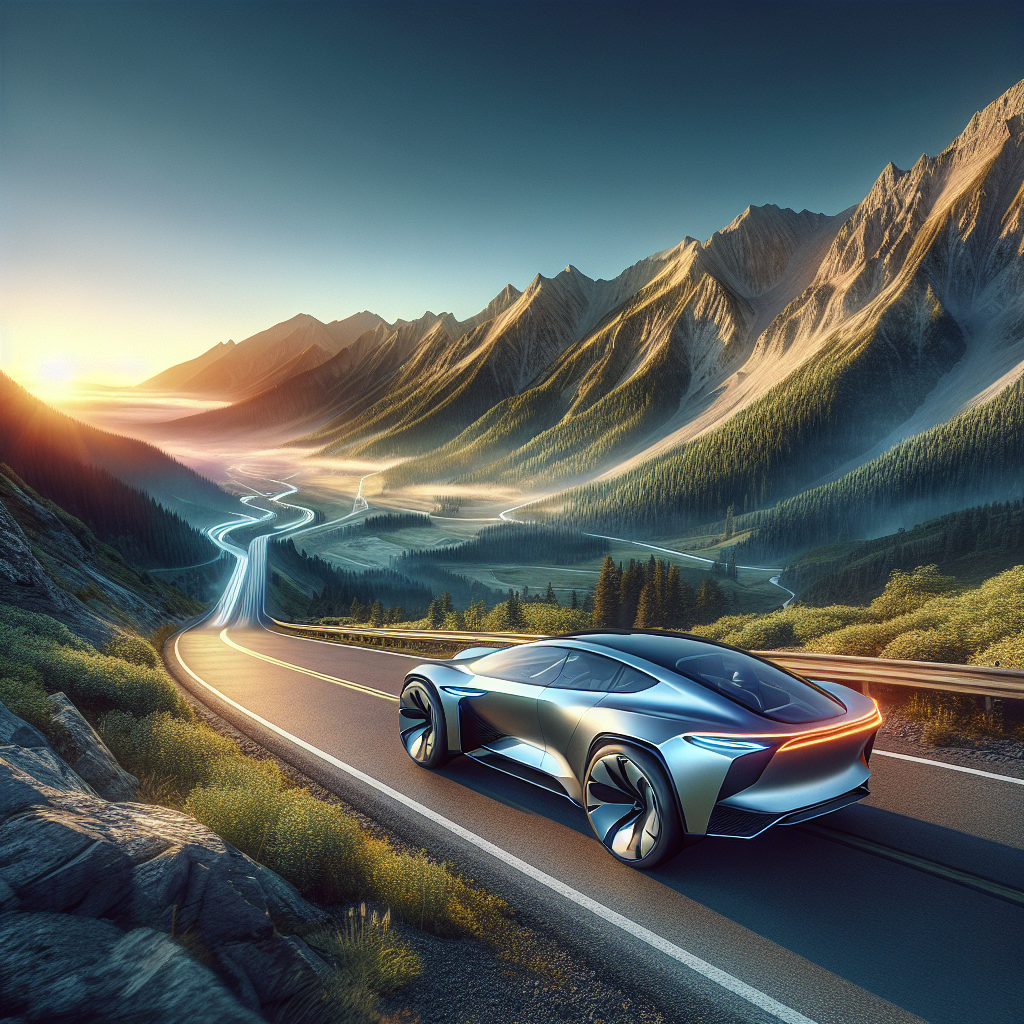
**Revolutionizing Roads: The Future of Electric Cars in 2025**
**Introduction**
Greetings to all the automotive enthusiasts in the US and Canada! The automotive industry is on the brink of a major transformation with the rise of electric vehicles (EVs). With advancements in technology and a growing focus on sustainability, the future of electric cars in 2025 looks promising. In this article, we will explore the key trends and developments shaping the electric car market in the upcoming years.
**Section 1: The Evolution of Electric Cars**
The year 2025 is set to be a pivotal moment for electric cars, with major automakers investing heavily in electrification. By this time, we can expect to see a wide range of EV models available to consumers, catering to various preferences and budgets. From compact urban EVs to luxury electric SUVs, the market will be diverse and competitive.
One of the key factors driving the growth of electric cars is the increasing focus on sustainability and reducing carbon emissions. With governments around the world implementing stricter environmental regulations, automakers are under pressure to develop cleaner and greener vehicles. Electric cars offer a viable solution to reduce the carbon footprint of the transportation sector and combat climate change.
Moreover, advancements in battery technology are making electric cars more practical and affordable. By 2025, we can anticipate significant improvements in battery range, charging infrastructure, and overall performance of EVs. Range anxiety, which has been a major concern for potential EV buyers, is expected to diminish as battery technology continues to evolve.
**Section 2: Infrastructure and Charging Solutions**
A key challenge for the widespread adoption of electric cars is the availability of charging infrastructure. In 2025, we can expect to see a significant expansion of charging networks, both in urban areas and along highways. Governments, utilities, and private companies are investing in charging infrastructure to support the growing number of electric vehicles on the road.
Fast-charging technology will also play a crucial role in the adoption of electric cars. By 2025, we can anticipate faster charging speeds and improved convenience for EV owners. Ultra-fast chargers capable of delivering a full charge in minutes, as opposed to hours, will become more common, making long-distance travel in electric cars more feasible.
Additionally, smart charging solutions and vehicle-to-grid technology will enable EV owners to optimize their charging schedules based on electricity prices and grid demand. This will not only benefit consumers by reducing charging costs but also help balance the grid and enhance overall energy efficiency.
**Section 3: Autonomous Driving and Connectivity**
In 2025, electric cars will not only be cleaner and more efficient but also smarter and more connected. The integration of autonomous driving technology will revolutionize the way we commute, making transportation safer, more convenient, and more enjoyable. Electric vehicles are poised to be at the forefront of the autonomous driving revolution, with leading automakers developing self-driving EVs equipped with advanced sensors and AI capabilities.
Moreover, connectivity features such as over-the-air updates, remote vehicle monitoring, and integrated smart home integration will enhance the overall driving experience. By 2025, electric cars will be seamlessly integrated into the IoT ecosystem, offering a range of personalized services and functionalities to users.
**FAQs**
**FAQ 1: Are electric cars more expensive to maintain than traditional gas-powered vehicles?**
Answer: While electric cars may have higher upfront costs, they are generally cheaper to maintain in the long run. EVs have fewer moving parts, which means lower maintenance and repair costs compared to internal combustion engine vehicles. Additionally, electric cars benefit from government incentives and lower operating costs, such as reduced fuel expenses.
**FAQ 2: How far can electric cars travel on a single charge in 2025?**
Answer: By 2025, advancements in battery technology are expected to significantly increase the range of electric cars. While the exact range will vary depending on the make and model, we can anticipate that many EVs will offer ranges of over 300 miles on a single charge, making them suitable for long-distance travel.
**Conclusion**
In conclusion, the future of electric cars in 2025 is bright, with a shift towards cleaner, smarter, and more sustainable transportation. As consumers in the US and Canada embrace electric vehicles, it is essential for automakers, policymakers, and stakeholders to work together to build a robust charging infrastructure, promote innovation, and accelerate the transition to a greener automotive landscape. To fully realize the potential of electric cars, it is crucial to invest in research and development, incentivize EV adoption, and foster a supportive regulatory environment. By embracing electric cars, we can revolutionize our roads and pave the way for a more sustainable future.
Join us in the electric car revolution and be a part of shaping the future of mobility!



 T6.1 auf neuem Level: Wenn H&R ins Spiel kommt…
T6.1 auf neuem Level: Wenn H&R ins Spiel kommt…